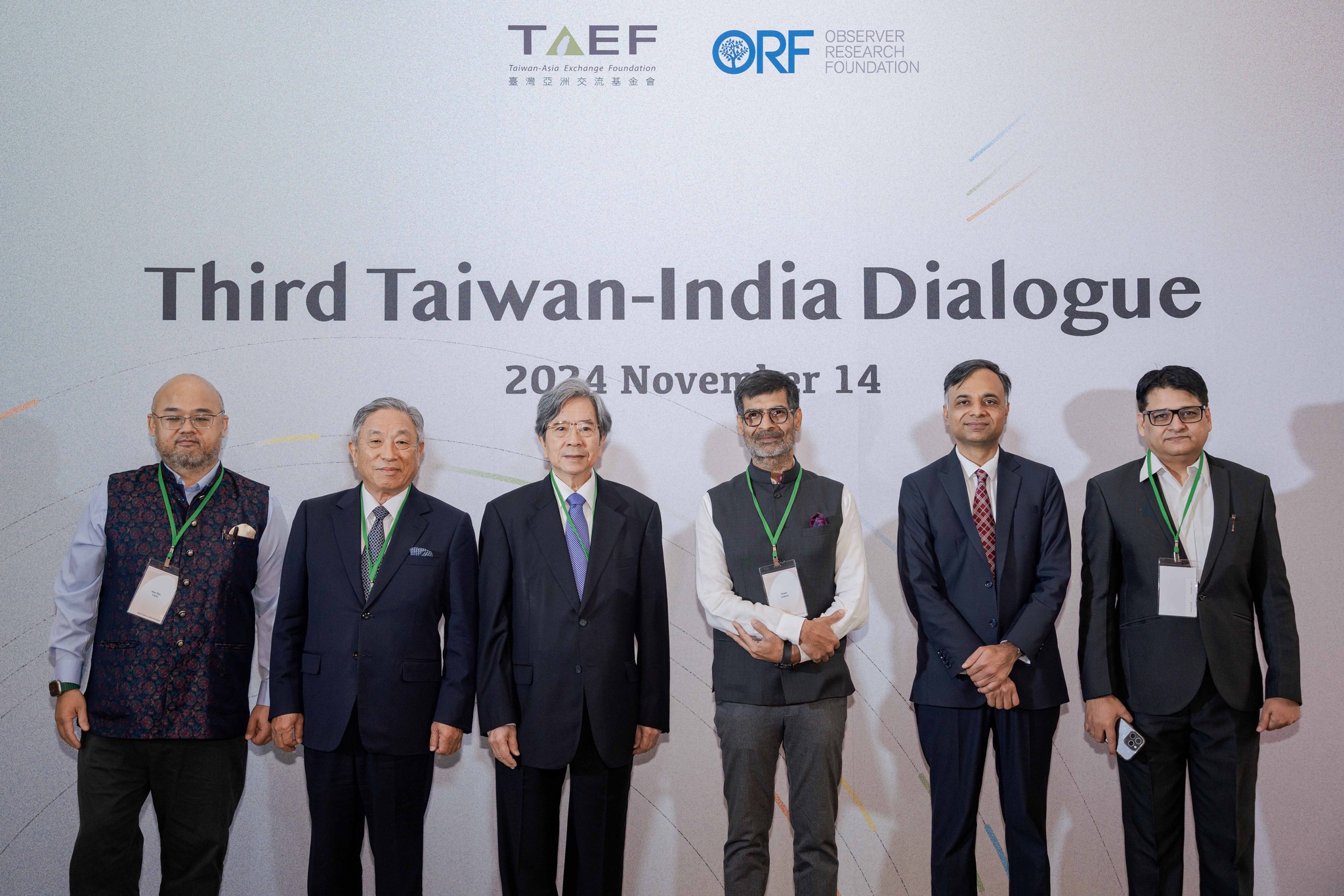The Taiwan-Asia Exchange Foundation (TAEF) and the Observer Research Foundation (ORF) jointly hosted the Third Taiwan-India Dialogue today (14th) at the Grand Mayfull Hotel Taipei. This closed-door forum, themed “Navigating Future Pathways,” examined how Taiwan’s New Southbound Policy Plus (NSP+) and India’s Act East Policy can drive a new blueprint for the Indo-Pacific region, reinforcing mutual commitments to regional stability, economic resilience, and cultural exchange.
Distinguished speakers included ORF President Samir Saran, ORF Vice President Harsh V. Pant, TAEF Chairman Hsin-Huang Michael Hsiao, TAEF Executive Director Alan Hao Yang, Deputy Foreign Minister Tien Chung-kwang, and Director General of the India-Taipei Association Manharsinh Laxmanbhai Yadav. The dialogue convened 24 experts, speakers and 30 high-level guests from Taiwan, India, and the United States, emphasizing critical areas for bilateral cooperation.
TAEF Chairman Hsin-Huang Michael Hsiao opened the dialogue by welcoming delegates from India, Taiwan, and the U.S., with a special acknowledgment of ORF President Samir Saran as a "true friend of Taiwan." He highlighted the substantial progress achieved through the ORF-TAEF partnership, particularly in advancing Taiwan-India cooperation through the annual Taiwan-India Dialogue and the recent renewal of their MOU. Chairman Hsiao underscored key joint initiatives, including policy reports like “Taiwan and India Strategizing the Relations,” as well as a collaborative roadmap with leadership under President Lai and Prime Minister Modi, to be published soon. Chairman Hsiao emphasized India’s role as an “indispensable partner” in Taiwan’s New Southbound Policy (NSP+), describing the Taiwan-India Dialogue as a model for “regional cooperation in security, economics, culture, technology, and people-to-people connections.” He expressed confidence that this partnership will continue to grow, strengthening ties across the Indo-Pacific.
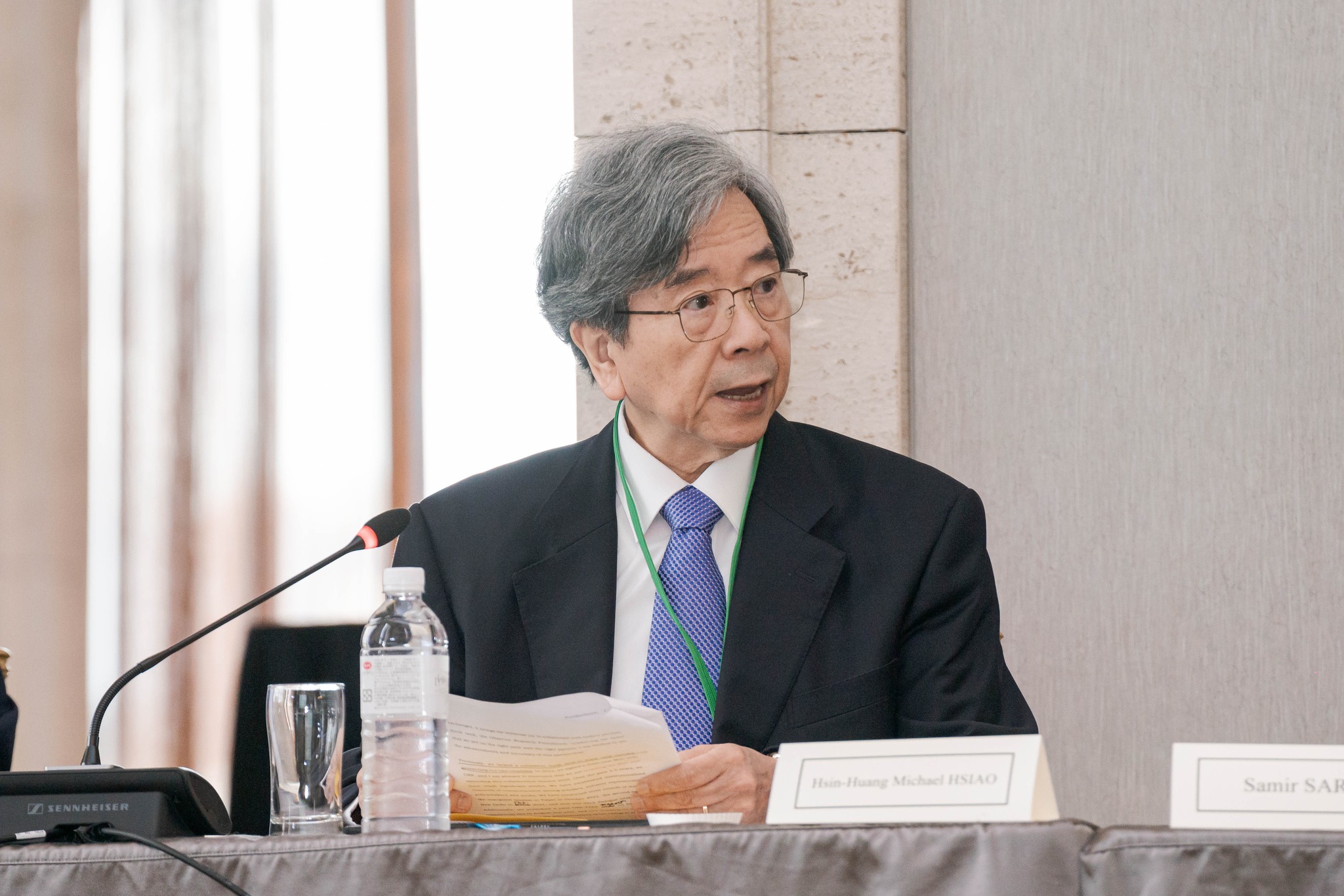
ORF President Samir Saran emphasized the importance of a Taiwan-India collaboration in a new era of diplomacy, underscoring their potential to make meaningful contributions to global affairs. Sharing his vision for "Navigating the Future," President Saran highlighted how both nations can structurally address the “geopolitics of tomorrow” through four key focus areas: capturing emerging geopolitical opportunities, affirming that “the times are new, the politics is new, the architecture is new"; fostering an energy transition that is “fair, just, inclusive”; advancing a technology and digital shift that “visibilizes the billions of people around the planet that were invisible till now”; and creating a cultural confluence to “build communities who think about big questions and nurture talents who will invest and be ambassadors of both our countries.” Looking ahead, President Saran proposed two key initiatives: advancing joint research on a “holistic security architecture,” and hosting Taiwanese fellows at ORF global centers in Dubai, India, and the U.S. to strengthen people-to-people ties. President Samir emphasized that India and Taiwan are “two different oceans with a common future,” and he expressed his optimism for the positive impact of this growing partnership.
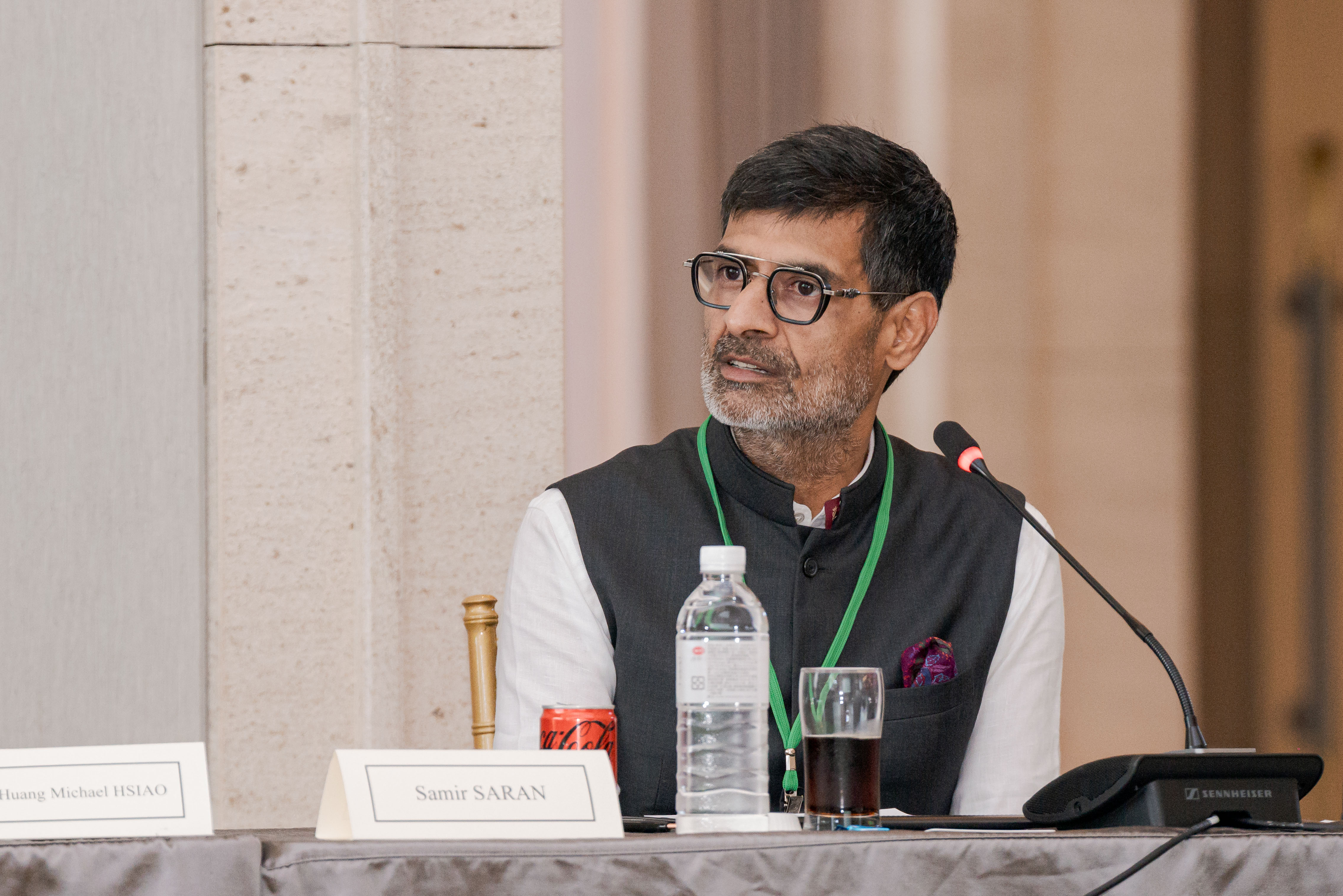
Deputy Minister of Foreign Affairs Tien Chung-kwang highlighted the deepening Taiwan-India relationship as a pivotal element in Indo-Pacific diplomacy, noting that the partnership has grown across “trade, technology, culture, and education.” He emphasized recent economic advancements, including initiatives in industrial parks and a focus on ICT, where both countries are “harnessing our strength for resilient supply chains and ecosystems for the future.” Deputy Minister Tien also pointed to the benefits of educational exchange, with Taiwan and India pursuing “new horizons and benefits,” and noted their shared commitment to addressing climate change, making “great strides in a greener future.” Recognizing Taiwan and India as vibrant democracies essential to regional stability, he called for bolstered security cooperation and trilateral partnerships with the U.S. to “promote peace, safeguard democracy, and enhance international stability” in today’s complex global environment. Expressing optimism for even closer ties, he highlighted the potential for resuming direct flights between Taipei and New Delhi.
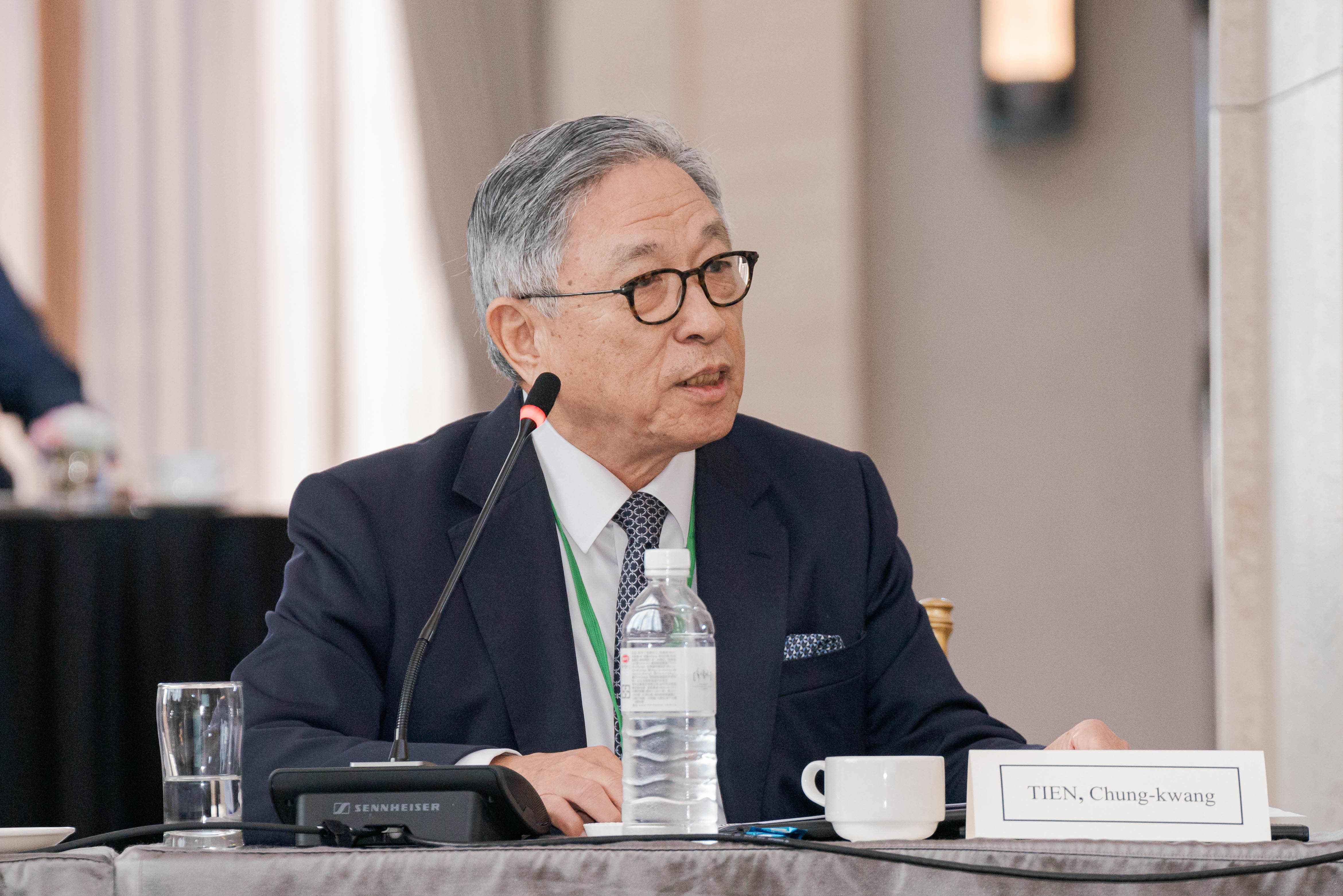
Director General of the India-Taipei Association, Manharsinh Laxmanbhai Yadav, emphasized the strengthening Taiwan-India relationship, underscored by recent MOUs in medicine, labor, and semiconductors and the growing presence of Taiwanese professionals in India’s semiconductor sector. He highlighted opportunities to expand collaboration through working groups and I-TECH initiatives, with both governments open to “new ideas on new mechanisms.” Yadav outlined three promising areas for future cooperation: first, skills development in “economic democratic industries”; second, reinforcing supply chain resilience to support India’s ambition to become a “manufacturing hub” and Taiwan’s “desire to find new jurisdictions” for AI advancement; and third, technology and innovation partnerships, including incubation centers, enhanced innovation capacity, and clean energy solutions. He also noted several challenges faced in India-Taiwan relations as factors for future policy consideration and urged think tanks to propose “practical ideas.” These included addressing “limited exposure” between Taiwan and India in cultural and educational exchanges, as “ACT East and NSP are still in their nascency,” fostering scholarly links between think tanks, supporting Taiwan’s bilingual initiatives through India’s educational expertise, and countering disinformation to encourage mutual understanding. Concluding, Yadav emphasized that, through continued exchanges, cultural festivals, and strategic cooperation, Taiwan and India can establish a resilient partnership and shared prosperity in the Indo-Pacific.
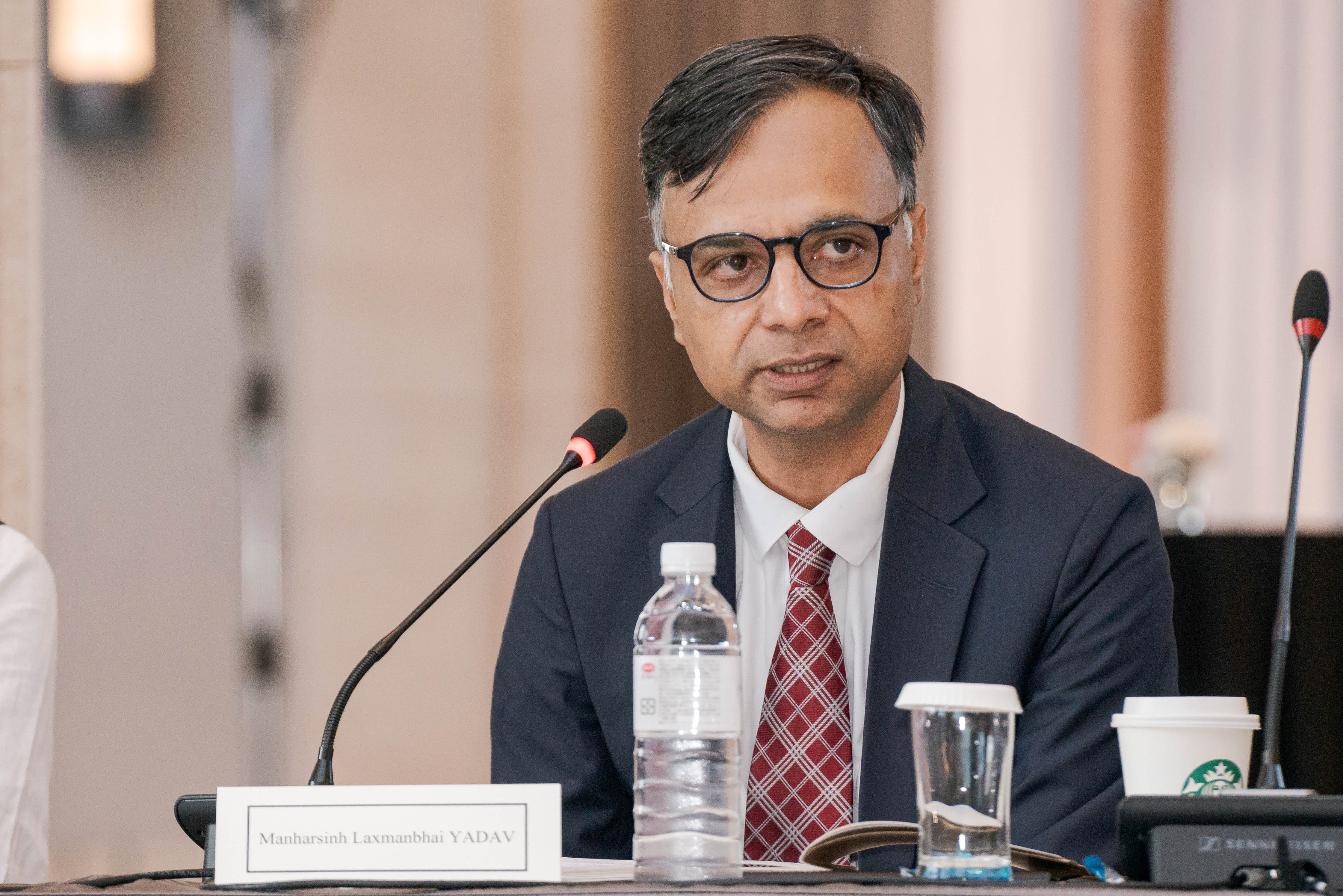
Following the opening ceremony, the Third Taiwan-India Dialogue centered on four key themes essential to advancing Taiwan-India collaboration: “Forging Stability in Indo-Pacific Geopolitics: The Role of Taiwan and India”; “Tech-driven Economic Resilience: Strategies of Taiwan and India”; “Strengthening Taiwan-India Connections through Tourism, Education, Culture, and Communication (TECC)”; and “New Southbound Policy+ Roundtable: Exploring the Blueprint for Taiwan-India Cooperation.” These discussions highlighted strategic priorities for future partnership.
Prior to the dialogue, on November 13, the ORF delegation was welcomed by Vice President Hsiao Bi-khim and Deputy Foreign Minister Tien Chung-kwang in high-level meetings that underscored Taiwan-India diplomatic and economic partnerships, emphasizing shared goals and new opportunities for bilateral cooperation and sustainable development.
(Related Press:https://www.president.gov.tw/N...)
As Taiwan and India navigate the evolving Indo-Pacific landscape, forums like the Taiwan-India Dialogue provide essential avenues for deepening mutual understanding and fostering cooperation. TAEF and ORF anticipate hosting the Fourth Taiwan-India Dialogue in India, building on the progress made in Taipei and advancing the shared vision for regional stability, resilience, and cultural exchange.
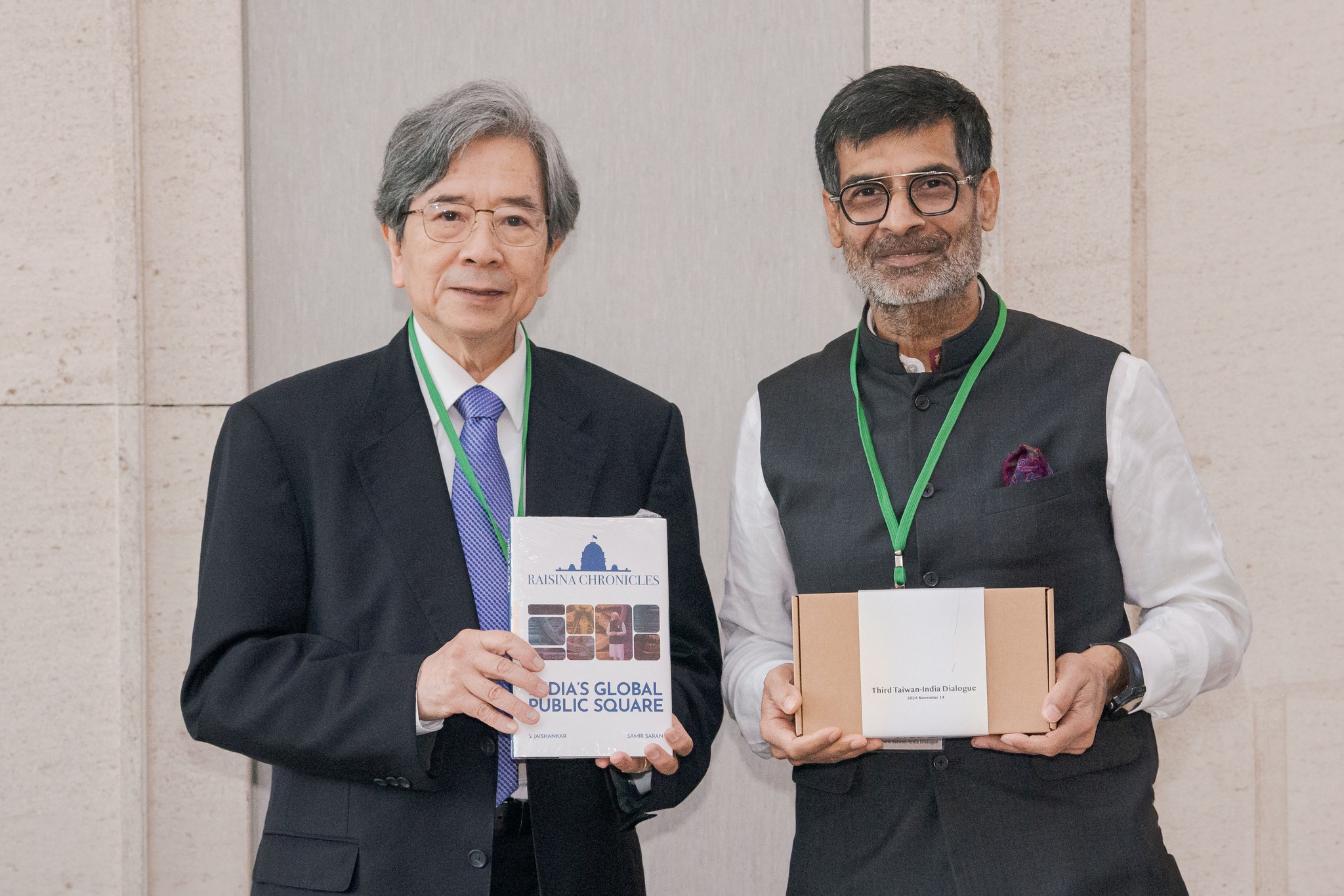
—
About the Taiwan-Asia Exchange Foundation (TAEF)
Founded in 2018, the Taiwan-Asia Exchange Foundation (TAEF) is Taiwan’s first policy-oriented think tank dedicated to Southeast and South Asian affairs and the advancement of Taiwan’s New Southbound Policy (NSP). Recognized globally, TAEF has been nominated among the Best New Think Tanks in the 2018 and 2019 Global Go To Think Tank Index Reports and has received honors from the University of Pennsylvania’s Think Tanks and Civil Societies Program (TTCSP) as the Global Best New Think Tank since 2020. Through its core programs, TAEF builds comprehensive partnerships with the 10 ASEAN nations, 6 South Asian countries, Australia, and New Zealand, supporting initiatives like the NSP+ Think Tank, Youth, and NGO Corridor to foster collaboration across sectors. TAEF also hosts the Yushan Forum annually, a premier platform launched in 2017 to promote regional dialogue and celebrate Public-Private-People Partnerships advancing the NSP. The upcoming 8th Yushan Forum, slated for spring 2025, will address “Ushering in a New Era of Global Cooperation through the New Southbound Policy+.”
About the Observer Research Foundation (ORF)
The Observer Research Foundation (ORF) is India’s largest private, non-profit think tank, committed to advancing Indian policy through research, academic collaboration, and dialogue. With a mission to support India’s growth as a sustainable power in a prosperous, equitable society, ORF holds top rankings among over 500 Indian think tanks, placing 8th in the “Top Think Tanks Worldwide (Non-US)” category and 24th in the “Top Think Tanks Worldwide (US and Non-US)” in the 2020 Global Go To Think Tank Index Report. ORF’s research spans a broad spectrum, including energy, climate change, sustainable development, strategic studies, economics, technology, media, and political economy.
